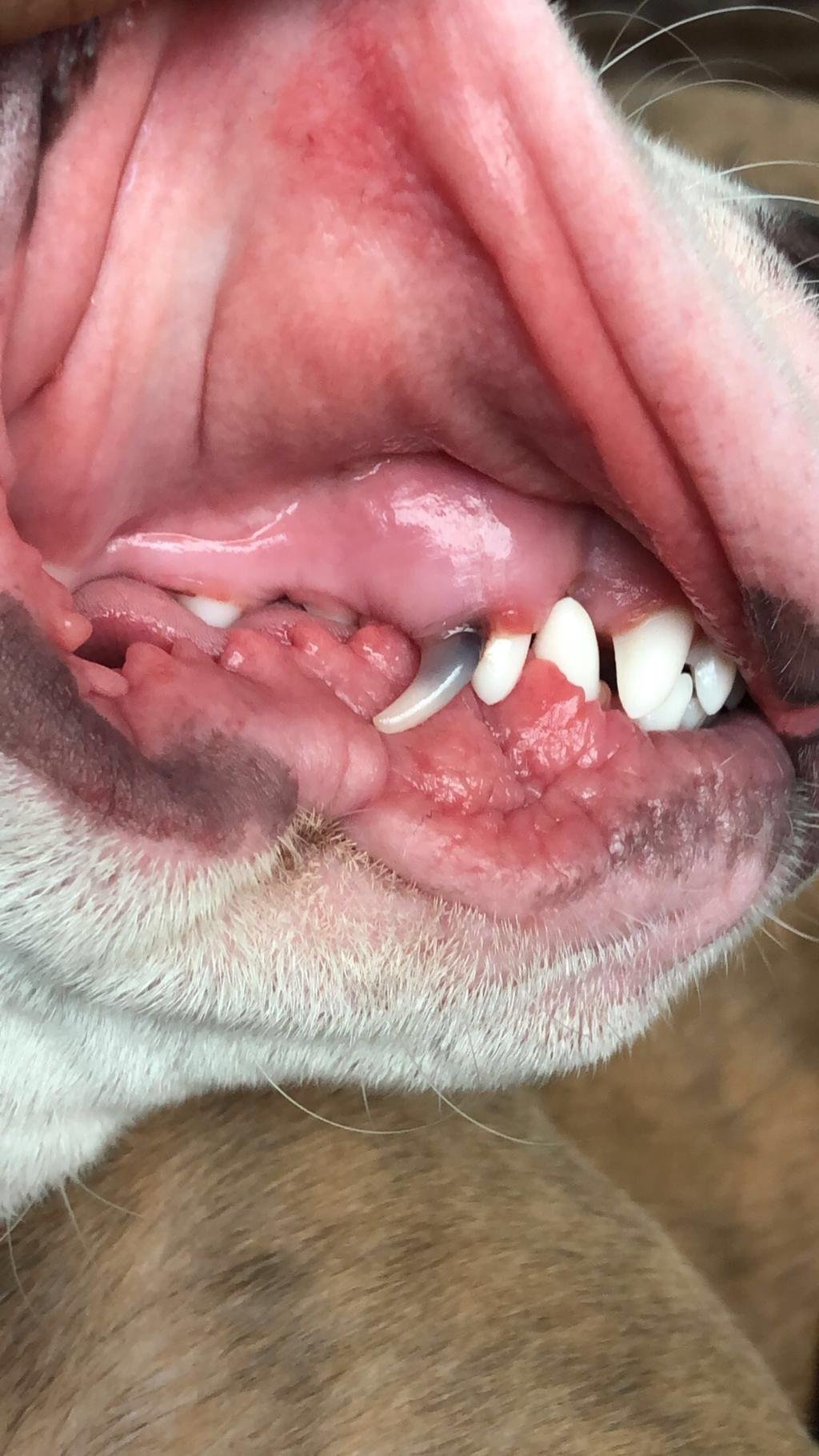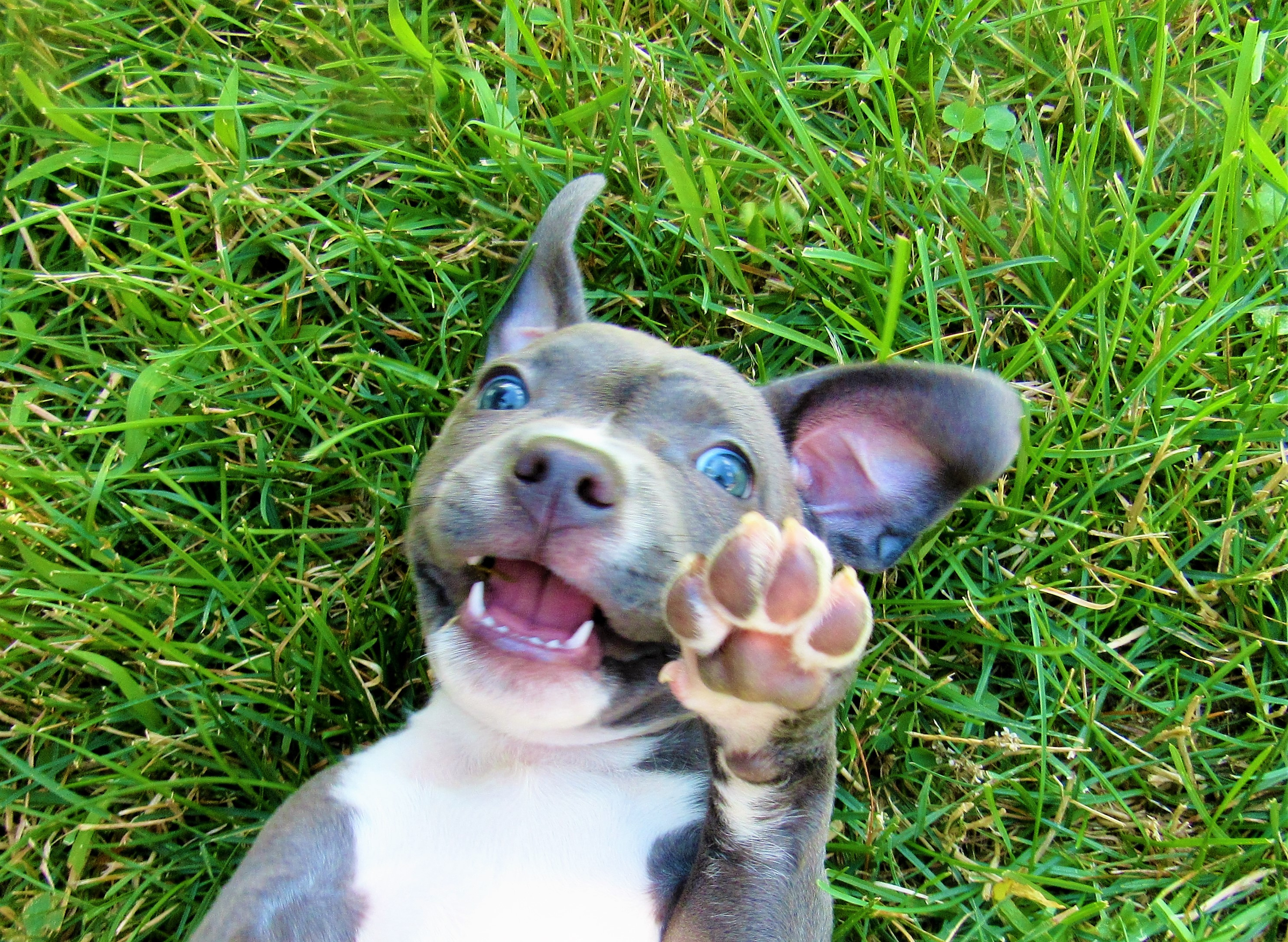As a professional, I find it fascinating to learn about the various stages of a pitbull puppy’s development. Did you know that just like human babies, pitbull puppies also go through a teething process? It’s true! These adorable little balls of energy experience the loss of baby teeth as they grow.

Do Pitbull Puppies Lose Teeth?
Pitbull puppies, like other dog breeds, experience the process of losing their baby teeth and replacing them with permanent teeth. This is a natural and important stage of their development, similar to human children losing their baby teeth. Understanding this process can help ensure the proper care and dental hygiene of your Pitbull puppy. In this article, we will explore the topic of pitbull puppies losing their teeth in detail, providing valuable information and tips for pet owners.
Why Do Pitbull Puppies Lose Their Teeth?
Just like humans, puppies are born without teeth. At around three to four weeks of age, pitbull puppies start developing their baby teeth, also known as deciduous teeth. These baby teeth are temporary and serve as placeholders for their adult teeth, allowing them to chew and eat appropriately. As pitbull puppies grow, the roots of their baby teeth dissolve to make way for their permanent teeth, which start erupting at around three to five months of age. The process of losing baby teeth and replacing them with permanent teeth typically completes by six to seven months of age.
During this teething stage, you may notice your pitbull puppy becoming more prone to chewing and biting. This is because the discomfort of their gums and the urge to relieve the discomfort through chewing. Providing appropriate chew toys and ensuring they have a balanced diet can help alleviate their teething discomfort and protect your furniture and belongings from chewing damage.
It’s important to note that not all puppies lose their baby teeth smoothly. Sometimes, baby teeth may not fall out on their own, resulting in retained baby teeth. Retained baby teeth can cause problems, such as overcrowding and misalignment of the permanent teeth. In these cases, it’s essential to consult with your veterinarian to determine the best course of action, which may involve extracting the retained baby teeth to avoid future dental issues.
What to Expect During the Teething Process
During the teething process, pitbull puppies may experience certain symptoms and behaviors that are normal for this stage of development. Understanding these signs can help you provide the necessary care and support for your puppy:
- Increase in chewing: As puppies’ gums become sore and itchy, chewing helps ease the discomfort. Provide appropriate chew toys to redirect their chewing behavior and protect your belongings.
- Bleeding gums: It’s normal to see slight bleeding or reddening of the gums as the baby teeth fall out and the permanent teeth erupt. However, if the bleeding is excessive or prolonged, consult your veterinarian.
- Loss of appetite: Some puppies may experience a temporary decrease in appetite due to the discomfort caused by teething. Offer smaller, softer, and more palatable meals to entice them to eat, or speak to your vet for further advice.
- Increased drooling: Teething can stimulate saliva production, leading to increased drooling. Keep a towel handy and regularly wipe your puppy’s mouth to keep them clean and comfortable.
- Behavioral changes: Your pitbull puppy may be more irritable, restless, or mouthy during the teething phase. Provide plenty of mental and physical stimulation to help them cope with these changes and redirect their energy in positive ways.
It’s important to remember that every puppy is different, and the intensity and duration of the teething process may vary. Patience, understanding, and proper dental care are crucial during this stage to ensure your pitbull puppy’s dental health in the long run.
Tips for Caring for Your Pitbull Puppy’s Teeth
Proper dental care is essential for your pitbull puppy’s overall health and well-being. Here are some tips to help you care for their teeth during the teething stage and beyond:
- Regular brushing: Introduce tooth brushing to your puppy early on to get them accustomed to the process. Use a dog-specific toothbrush and toothpaste approved by your veterinarian. Brush their teeth gently in circular motions, focusing on the gum line.
- Provide appropriate chew toys: Invest in chew toys specifically designed for puppies to alleviate teething discomfort and redirect their chewing behavior away from destructive items. Avoid hard toys that may damage their teeth.
- Dental treats and chews: Consider offering dental treats and chews that promote oral health and help remove plaque and tartar. Look for products approved by veterinary dental associations.
- Regular veterinary check-ups: Schedule regular dental examinations for your pitbull puppy to monitor the growth of their permanent teeth and address any dental issues promptly. Your vet can also provide professional teeth cleanings if necessary.
- Healthy diet: Feed your pitbull puppy a balanced diet with appropriate nutrients for optimal dental health. Avoid excessively hard or sticky foods that may contribute to dental problems.
By following these tips and providing proper dental care, you can help ensure your pitbull puppy grows into a happy and healthy adult dog with strong and clean teeth. Remember to consult with your veterinarian for personalized advice based on your puppy’s specific needs.
Common Dental Issues in Pitbulls and How to Prevent Them
Pitbulls, like other dog breeds, are prone to certain dental issues that can affect their oral health. Awareness of these issues and preventive measures can help you maintain your pitbull’s dental well-being. Here are some common dental issues in pitbulls:
Tooth Decay and Cavities
Poor dental hygiene and a diet high in sugar or carbohydrates can lead to tooth decay and cavities in pitbulls. Regular brushing, dental treats, and a balanced diet can help prevent these issues. Regular veterinary check-ups and cleanings are also crucial for identifying and treating tooth decay before it progresses.
Gingivitis and Periodontal Disease
Gingivitis is inflammation of the gums, and if left untreated, it can progress to periodontal disease, which affects the tissues and structures supporting the teeth. Good oral hygiene, regular dental check-ups, and professional cleanings are essential in preventing and managing these conditions. Your vet may recommend antibiotics or deep cleaning procedures if needed.
Malocclusion
Malocclusion refers to misalignment or imperfect positioning of the teeth. It can lead to issues with chewing, discomfort, and dental hygiene problems. Severe cases may require orthodontic intervention or extraction of affected teeth to prevent further complications. Early detection through regular veterinary check-ups is crucial for managing malocclusion.
Remember, prevention is key when it comes to dental issues. By implementing good oral hygiene practices, providing appropriate chew toys, and seeking regular veterinary care, you can significantly reduce the risk of dental problems in your pitbull.
Conclusion
Understanding the teething process and the importance of dental care in pitbull puppies is key to their overall health and well-being. Pitbull puppies do lose their baby teeth, and this is a normal part of their development. By providing appropriate care, such as regular brushing, offering chew toys, and scheduling veterinary check-ups, you can ensure that your pitbull puppy’s teeth grow strong and healthy. Remember to be patient and supportive during this teething phase, as it’s a natural part of their journey to adulthood. With proper dental care and attention, your pitbull will have a lifetime of healthy smiles.
Key Takeaways: Do Pitbull Puppies Lose Teeth?
- Pitbull puppies, like all puppies, go through a teething stage where they lose their baby teeth.
- Typically, pitbull puppies start losing their baby teeth around 3-6 months old.
- During the teething stage, it is common for pitbull puppies to chew on things to relieve discomfort.
- As pitbull puppies lose their baby teeth, their adult teeth will start to grow in.
- If you notice excessive bleeding, pain, or signs of infection during the teething process, consult a veterinarian for guidance.
Frequently Asked Questions
When it comes to pitbull puppies, there are a lot of questions that arise about their care and development. Here are some common questions about whether or not pitbull puppies lose their teeth.
1. What age do pitbull puppies start losing their baby teeth?
Pitbull puppies, like all puppies, will start losing their baby teeth around 3-4 months of age. This is a natural process known as teething, where their adult teeth start to push through the gums, pushing out the baby teeth. It is during this time that you may notice your puppy chewing on things more frequently, as it helps relieve the discomfort of teething.
It’s important to provide appropriate chew toys to satisfy their natural urge to chew and protect your belongings from being damaged. Losing baby teeth and the emergence of adult teeth should be a gradual and painless process.
2. Is it normal for pitbull puppies to bleed when losing their baby teeth?
It is normal for your pitbull puppy to experience some light bleeding when losing their baby teeth. As the adult teeth come in, they push the roots of the baby teeth out, causing them to become loose and eventually fall out. This process may cause some minor bleeding to occur, which is nothing to be alarmed about. You may notice a small amount of blood on your puppy’s chew toys or in their water dish.
If you do notice excessive bleeding or your puppy seems to be in severe discomfort, it is always best to consult your veterinarian for further guidance. They can ensure that everything is progressing normally and address any concerns you may have.
3. How long does it take for pitbull puppies to lose all their baby teeth?
The timeline for pitbull puppies to lose all their baby teeth can vary, but it generally takes around 4-6 months. This process is similar to how human children lose their baby teeth and replace them with permanent teeth. It starts with the incisors, followed by the canines, premolars, and finally the molars.
By the time your pitbull puppy is around 6 months old, they should have all their adult teeth fully emerged. It’s essential to continue providing appropriate chew toys and dental care during this time to ensure their new teeth come in strong and healthy.
4. Will pitbull puppies experience any discomfort when losing their baby teeth?
Losing baby teeth should not cause significant discomfort for pitbull puppies. However, you may notice some signs of mild discomfort during the teething process, such as increased chewing, drooling, and irritability. Providing your puppy with appropriate chew toys, frozen washcloths, and even some puppy teething gels can help alleviate any discomfort they may experience.
It’s important to monitor your puppy during this time and ensure they are still eating and drinking normally. If you notice any excessive pain, refusal to eat, or other concerning symptoms, it’s best to consult with your veterinarian for further evaluation.
5. How can I help my pitbull puppy during the teething process?
There are several ways you can help your pitbull puppy during the teething process. First, provide them with a variety of appropriate chew toys that are specifically designed for teething puppies. These toys can help soothe their gums and provide an outlet for their chewing instincts.
Additionally, frozen washcloths or teething rings can be helpful in numbing their gums and providing relief. Some puppy-safe teething gels or sprays may also be used, but it’s important to consult with your veterinarian before using any over-the-counter products.
Regular dental care, such as brushing their teeth with a puppy toothbrush and toothpaste, can also promote good oral hygiene and ease any discomfort. Always monitor your puppy during the teething process and consult your veterinarian if you have any concerns or questions.

